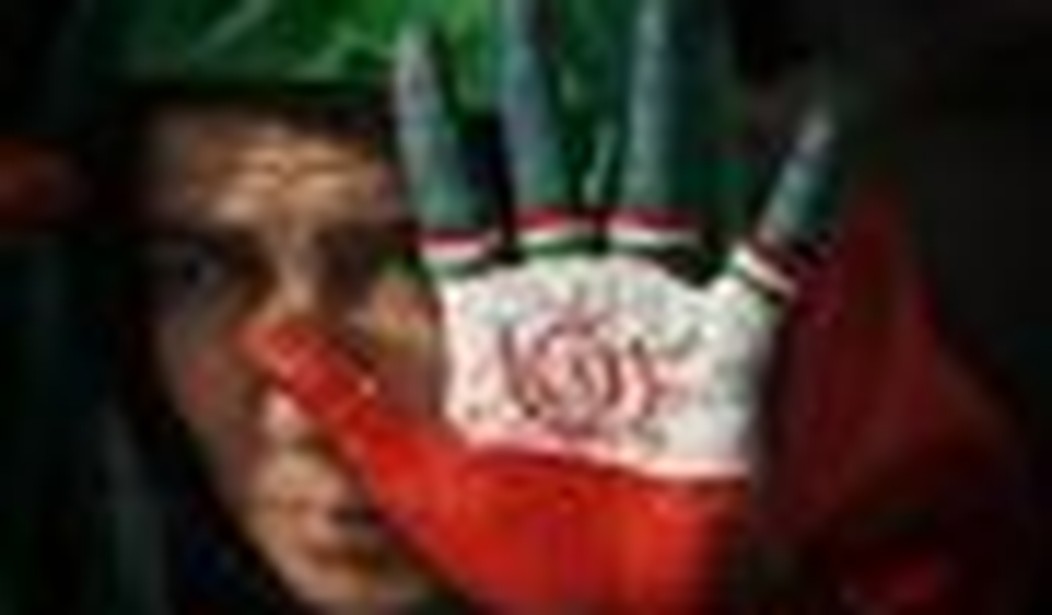When it comes to the Middle East, false narratives are the norm, not the exception. President Obama and the mainstream media that lionizes his every word have seriously misinterpreted recent developments in the region — specifically the Lebanese elections and the sham election in Lebanon’s mothership-state, the Islamic Republic of Iran.
In Lebanon, the Iranian-backed terror group Hezbollah was subjected to a crushing electoral defeat at the hands of U.S.-allied secularists and moderates. The international press was quick to credit Obama’s charisma — particularly, his unprincipled speech in Cairo — for this welcome news. The Associated Press proclaimed, “President Barack Obama’s outreach to Muslims lingered in [Lebanese] voters’ minds.” Cynthia Tucker credited the speech too, asserting, “Obama changed Lebanese minds,” namely because his speech was “a much-needed step away from the Cheney-Rumsfeld ‘just bomb ’em’ doctrine.”
Thomas Friedman at the New York Times quoted Paul Salem, the starry-eyed analyst at the Carnegie Endowment for International Peace. “People in this region have become so jaded,” Salem explained. “And then here came this man [Obama], who came to them with respect, speaking these deep values about their identity and dignity … and this person indicated that this little prison that people are living in here was not the whole world. That change was possible.”
These misperceptions about Lebanon recall an old Arab proverb: “When shooting an arrow of truth, dip its point in honey.” Leg-tingling about the president aside, Hezbollah lost the election in Lebanon for several reasons; chief not among them was Obama’s amoral speechifying in Egypt.
For starters, domestic Lebanese politics played a substantial role. The breaking news that a pending UN investigation would purportedly blame Hezbollah for the 2005 assassination of Rafik Hariri, the popular former premier, certainly had a large part in Hezbollah’s defeat. In addition, these were just the second elections since the occupying Syrian forces, Hezbollah’s patrons, were kicked out of Lebanon in 2005, and the first elections since the Israeli-Hezbollah war in 2006. For the people of Lebanon, both events reinforced how detrimental Hezbollah’s presence in Lebanon truly is, and both events were proactively supported and encouraged, explicitly and implicitly, by the previous administration — yes, George W. Bush — to the hesitation, trepidation, and even chagrin of realists and doves in Congress.
To credit President Obama’s speech in Cairo for the continued democratization of Lebanon is as far of a stretch as feasibly possible. In his speech, Obama never mentioned the upcoming Lebanese elections, Hezbollah, or “terrorists” in general. He mentioned Lebanon precisely one time, in the context of respecting the Maronite Christian minority. But Lebanon has always reserved the presidency for Maronites and Lebanon’s top Maronite leader, General Michel Aoun, is one of Hezbollah’s sole Christian allies. Obama has even gone so far as to once proclaim that Hezbollah has “legitimate claims.” This is a nihilistic and ideologically medieval group that has killed more Americans than any organization in the world not named al-Qaeda. “Legitimate claims.” What should we make of that?
The election outcome in Lebanon is the result of two unreported trends throughout the Middle East: the repudiation of Iranian proxies and the rejection of sectarianism. In Iraq’s governorate elections this year, the Iraqis ousted Islamist parties once propped up by the Iranian regime in favor of secular and non-sectarian political blocs. Nearly 4,000 Iraqi women ran for political office. In Kuwait this year, liberal and secular parties swept to victory in parliamentary elections, including four female parliamentarians — just a few short years after Kuwaiti women were allowed to run for office. Morocco’s last elections saw the fall of a major Islamist sectarian party, which was widely favored to win. The citizens of Lebanon and the broader Middle East have come to the conclusion that tolerating fanaticism will eventually fall victim to diminishing returns.
Which brings us to Iran’s electoral charade. All of the mainstream media and international press reports toed the line of conventional wisdom, whereby one candidate, Mahmoud Ahmadinejad, played the role of “hard-liner,” and the other, Mir-Hossein Mousavi, was cast as the proverbial “reformist moderate.”
Trumpeting up Mousavi’s “reformist” credentials, Leslie H. Gelb predicted, “This emerging Tehran and President Obama’s Washington are bound to find a common bond in fighting extremism both in Iran and among its volatile neighbors.” Andrew Sullivan even compared Mousavi to Governor Tim Pawlenty of Minnesota, with his “reform” agenda and all.
Thankfully, there are a few sober journalists with a decent memory, like Michael Goldfarb, who remember Mousavi’s brutal premiership under Khomeini throughout the 1980s. Under Mousavi’s rule, more than a million people were killed in the Iran-Iraq war. Mousavi proclaimed, “Israel should be annihilated.” He threatened, “Tomorrow will be the day we step on the Great Satan. … Tomorrow is the time for America to see our iron fists.” He called for the murder of Salman Rushdie for the offense of writing a novel — he proclaimed it a religious duty for all Muslims — and he oversaw the assassination of political opponents.
Despite what the Boston Globe and Huffington Post may say, Mir-Hossein Mousavi is no moderate. With that said, he is nowhere near as radical as his opponent, the incumbent Ahmadinejad. Regarding the Mousavi-Ahmadinejad election, President Obama unbelievably said, “We are excited to see what appears to be a robust debate taking place in Iran,” adding, “We think there’s the possibility of change. Ultimately the election is for the Iranians to decide.” Truly remarkable.
Clearly, President Obama has not read up on how Iran’s “elections” work. The Iranian people do not decide anything. The presidential nominees must first be pre-approved by the unelected mullahs who rule the country, and if the regime’s preferred candidate does not go on to win, then the election results are either rigged or ignored altogether. Case in point: the Iranian people, who overwhelmingly oppose the regime, voted for Mousavi as a sign of protest against Ahmadinejad and his clerical masters. But the mullahs — after blocking Mousavi’s websites and banning text messaging amongst Mousavi’s supporters — went on to declare Ahmadinejad the winner anyway.
With charges of fraud and conspiracy, the world knows the election was a farce. Even Mousavi knows — and he’s part of the government!
What President Obama praises as a legitimate democratic process — read: “change” — is anything but. The Iranian people’s favorable opinion of the United States is down from last year for this very reason. We should be lending credence to the voices of Iran’s dissidents, not Iran’s tyrants. We should show the Iranian people, in word and deed, that we understand their dictatorship and that we understand their dictators. We should show solidarity.
We will never do that by cutting their democracy funds or by turning a blind eye to, and indeed praising, their rigged elections.









Join the conversation as a VIP Member